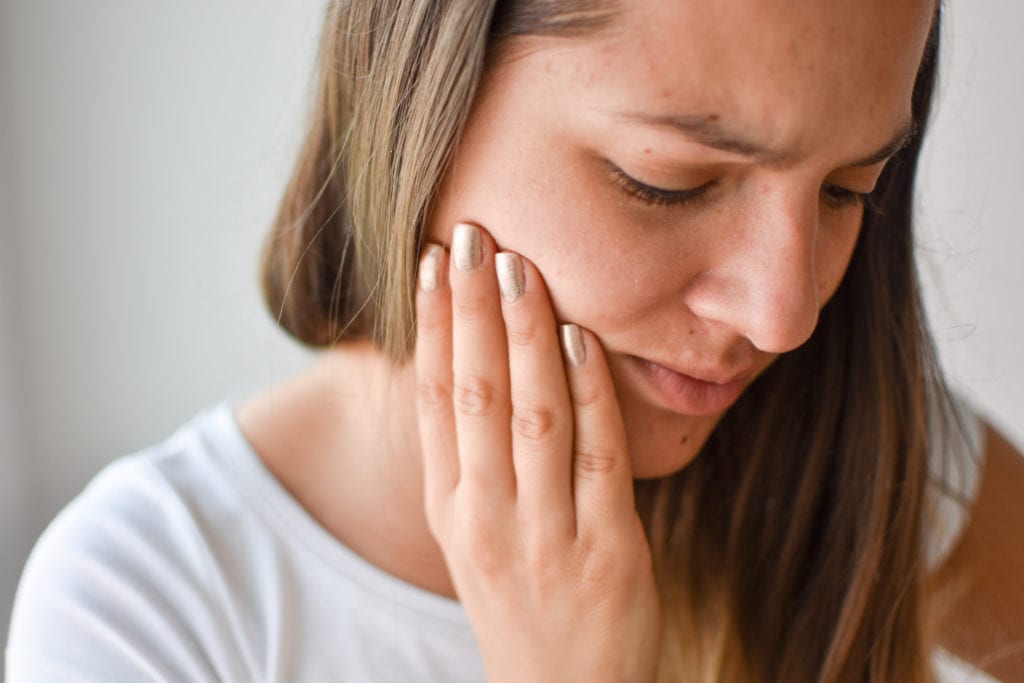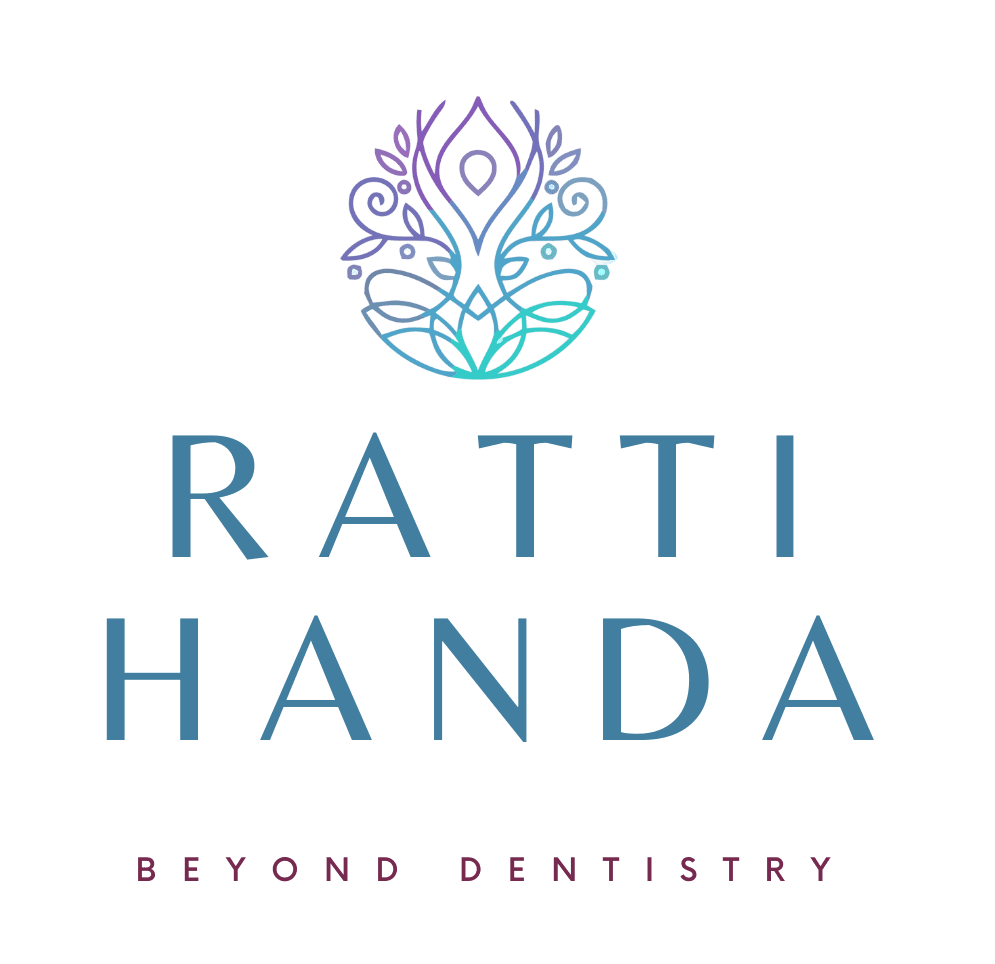If you clench or grind your teeth in stressful situations or during sleep, you may have bruxism. This dental concern is characterized by teeth clenching and grinding that puts pressure on the teeth. Over time, bruxism can damage the tooth structure, and patients will need restorative treatments. Dr. Ratti Handa offers treatment for teeth grinding in Acton, MA. Dr. Handa and her team are dedicated to giving patients high-quality, advanced dental solutions.

Common Signs of Teeth Grinding
Grinding the teeth is common during sleep, especially in children and teens. Teeth grinding can indicate that a person has not been getting enough sleep. Many patients grind their teeth because they are stressed or sore from dental work. It can also indicate problems such as temporomandibular joint dysfunction (TMJ).
There are multiple common signs of bruxism to look out for:
- Worn teeth
- Jaw pain
- Teeth clenching
- Tooth sensitivity
- Chronic headaches
- Facial pain
- Muscle tenderness
- Lockjaw
- Fractured teeth
- Loose teeth
If any of these symptoms sound familiar to you, call 978.212.3783. Patients who have crooked teeth, a misaligned bite, or suffer from frequent stress or anxiety are more prone to this condition. There are also more severe consequences of untreated bruxism. Tooth enamel can weaken with increased tension and become damaged or worn down over time.
Clenching or grinding teeth also increases pressure on teeth. This pressure is fourty times stronger than the pressure exerted from normal chewing.
Sleep cannot stop the pressure from teeth grinding. Those who have problems with night bruxism may have weakened gums and teeth while unaware of the problem. If left untreated, bruxism can cause severe damage to teeth, jaw muscles, and joints.
Treatment for Teeth Grinding in Acton, MA
Dr. Handa provides oral appliance therapy to patients with bruxism. Oral appliances take the pressure off the jaw and help teeth become appropriately aligned. Most importantly, this mouth-guard-like appliance stops teeth from clenching and grinding together. They protect teeth to prevent further wear and tear.
This treatment can be worn overnight or during anxiety-inducing situations. Dr. Handa can provide restorative treatment if teeth are worn down too much or are damaged from bruxism. Treatments like dental implants, crowns, or even dentures benefit patients with worn or lost teeth.
Patients with tooth damage benefit from dental crowns. Crowns are caps that fully cover single teeth.
If patients are missing one or more permanent teeth, Dr. Handa will recommend dental implants. Implants can secure restorations to ensure they last for many years. Dentures are a popular restoration for entire rows or arches of lost teeth. Patients can receive traditional or implant dentures.
At-Home Care For Teeth Grinding
In addition to professional treatment, lifestyle changes and at-home care can minimize teeth grinding. There are several things you can do at home to lessen the chance of teeth grinding:
- Avoid caffeine: Caffeine jumpstarts your nervous system. While you can still enjoy caffeine, it’s a good idea to cut down on tea, coffee, and sodas that contain caffeine.
- Notice your jaw position: You can clench without realizing it throughout the day. To help relax your jaw, ensure your tongue gently touches the roof of your mouth behind your top teeth.
- Avoid bad habits: Don’t chew on pens, pencils, or ice. Pressure from these hard objects can encourage you to chew constantly, which inhibits teeth grinding. You can also accidently chip or crack your tooth.
- Fix your posture: When you lean forward and hunch your back, you put more pressure on your upper body. Poor posture can also contribute to increased muscle and joint pain. Noitce how you position your upper body, especially when working on a computer. You can also sleep on your back with your head elevated if you regularly grind your teeth during sleep.
Lifestyle changes can reduce pain in the back, shoulders, and jaw. Patients who follow these changes may find that they hold less tension in their muscles.
Teeth Grinding FAQs
Learn more about teeth grinding with answers to these common patient questions:
What damage can grinding teeth cause?
Over time, teeth grinding can cause severe damage to teeth and lead to other health issues. Teeth grinding removes enamel from teeth, which cannot be replaced. It also may cause headaches and jaw pain. Ultimately, you may need dental bonding, veneers, or crowns if you damage your teeth.
What vitamin deficiency causes teeth grinding?
Having a vitamin deficiency may trigger patients to grind their teeth. Patients deficient in calcium or magnesium may be more prone to grind their teeth. Taking daily multivitamins can help reduce this deficiency.
Can teeth heal from grinding?
Teeth cannot recover from damage caused by teeth grinding. When patients grind their teeth, it damages their enamel. Patients can protect their teeth against further damage with a mouthguard but cannot reverse prior damage. Tooth enamel does not grow back.
What is the best way to stop grinding your teeth?
The best way to stop grinding your teeth is to wear a night guard, relax before bed, and massage your jaw muscles. This will help prevent severe grinding at night. Patients may also start an exercise routine to help prevent grinding at night.
Does anxiety cause teeth grinding?
Grinding your teeth shows excess tension and can be a stress response. Many people who suffer from anxiety and depression grind their teeth as a way of dealing with their feelings of stress. It’s common for anxious patients to grind their teeth without realizing it, especially during sleep.
Does high blood pressure cause teeth grinding?
Doctors estimate that 10% and 30% of adults grind their teeth while sleeping. High blood pressure is also linked to teeth grinding. It is possible to have high blood pressure when teeth grinding during sleep. However, teeth grinding is not a definitive cause of high blood pressure.
Schedule A Dental Exam Today
Our professional team will work with you to stop teeth grinding at the source. Call Dr. Handa today at 978.212.3783. You can also schedule an appointment on our website. Please let us know if you have questions about teeth clenching and grinding. We’re here to help make your daily life more comfortable.
